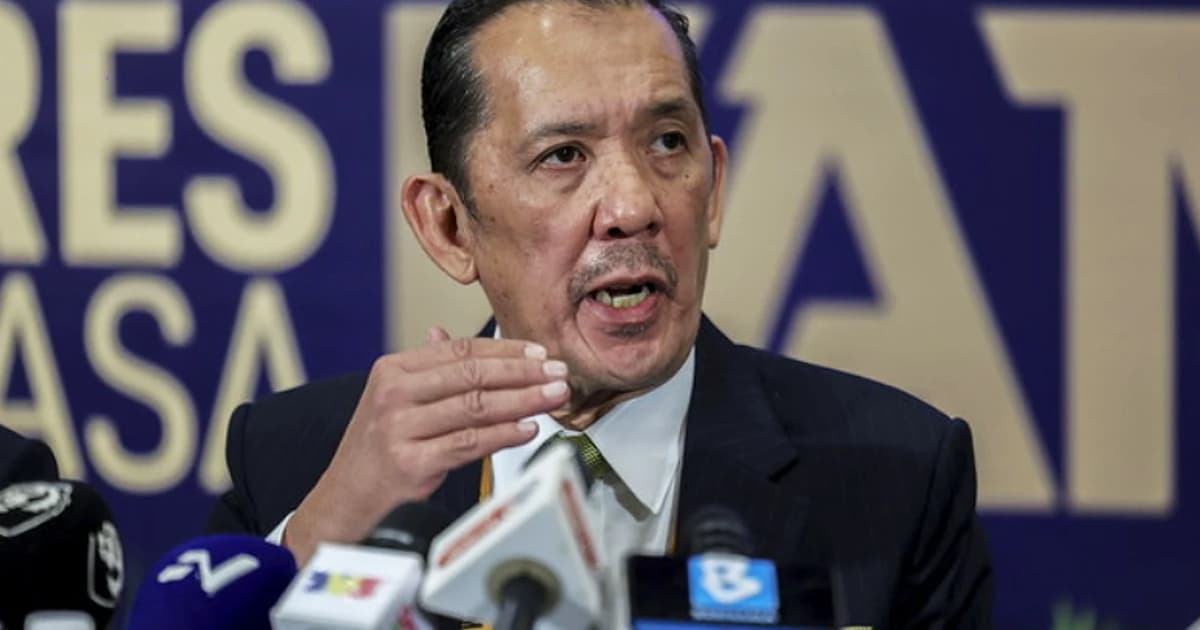
The president’s chair at the Football Association of Malaysia (FAM) is once again empty, barely six months after Joehari Ayub occupied it.
His resignation, tendered abruptly and without explanation, leaves him with the unenviable tag of being the shortest-serving leader in FAM’s history.
Deputy president Yusoff Mahadi steps in as acting president until an extraordinary congress convenes next year to elect a new leader for the remainder of the term.
Malaysian football, propped up by strong government funding, drifts into a critical phase under interim leadership.
Football is already a fragile ecosystem in this country — the sudden vacuum at the very top only deepens doubts about whether the sport is truly ready to reform.
Why Joehari quit so soon after taking office on February 15 is the question FAM cannot dodge.
Was it health, personal matters, or disagreements behind closed doors? Or was he overwhelmed by the scale of the job?
The longer silence prevails, the louder speculation will grow. For an organisation that has long been accused of secrecy and half-measures, hiding behind bland statements only fuels mistrust.
FAM has said little beyond confirming the timeline for an extraordinary congress. That may suffice for internal procedure, but it leaves fans, sponsors, and players in the dark.
Transparency is not optional here. If Malaysian football is to regain credibility, those in charge must explain why the president has walked away before even taking his seat properly.
A pattern of instability
Joehari’s exit is not just about one man. It is part of a pattern — a revolving door of presidents, each arriving with promises, each leaving without delivering real change.
The instability reflects deeper problems within FAM’s governance: factionalism, poor financial oversight, and a lack of independence in key areas like league management.
Fans have long complained of the same issues: clubs overspending without accountability, refereeing controversies eroding trust in results, and a league system that struggles to raise standards.
Even when the national team shows flashes of promise, off-field mismanagement drags everything back down.
What Malaysian football truly needs
Leadership changes mean little without structural reform.
Malaysian football needs financial fair play rules to stop clubs from spending beyond their means.
It needs professional, independent refereeing to restore faith in match decisions. It needs better league management to protect competition and improve standards.
And above all, it needs transparency so that fans and sponsors know the truth about how the game is being run.
Without these fundamentals, no president, however well-meaning, can succeed. Joehari’s abrupt resignation only makes this clearer.
The upcoming Asian Cup qualifiers are more than just fixtures. They are a test of whether Malaysian football can project unity and stability under pressure.
Yusoff may steady the ship temporarily, but he cannot be expected to chart a long-term course. That responsibility will fall to whoever is elected next year.
This makes the choice of FAM’s next president critical. It is not just a ceremonial role.
It is the responsibility of leading a reform that has been delayed too long, of convincing fans that their passion is not being squandered, and of proving to sponsors that football in Malaysia can be run with professionalism.
A call from the stands
For now, the story of Joehari’s six months in office is a cautionary tale — a presidency over before kick-off, and a reminder that cosmetic leadership changes cannot fix a broken system.
But Malaysian football is not without hope. Its fan base is passionate and loyal. Its young players are hungry. Its potential remains vast.
What is missing is the governance to harness that energy and translate it into lasting progress.
The next president cannot simply inherit the chair. He must embrace the responsibility to finally break the losing streak.
The stakeholders deserve a football association that fights for the game, not just for itself.
The whistle has blown. The clock is ticking. Malaysian football stands at the edge of the box, the goal in sight.
What comes next — a breakthrough strike or another missed chance — depends on whether those entrusted with leadership have the courage to take the shot.
The views expressed are those of the writer and do not necessarily reflect those of FMT.






